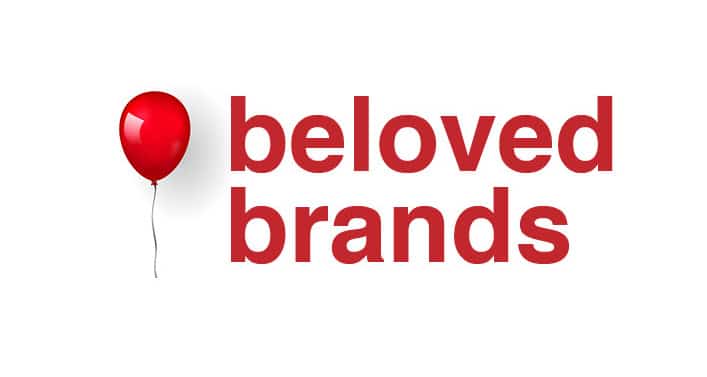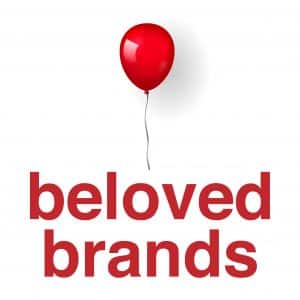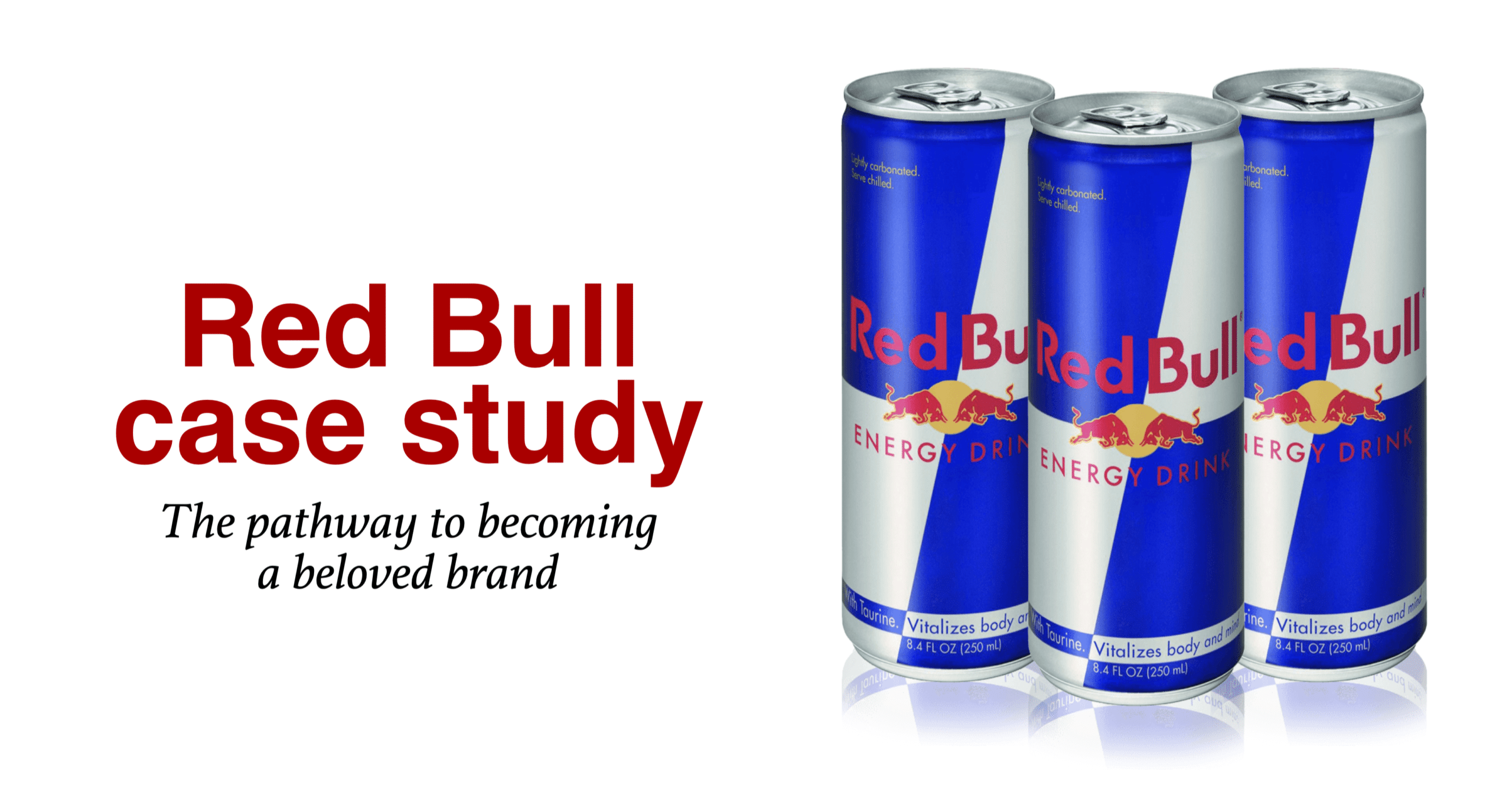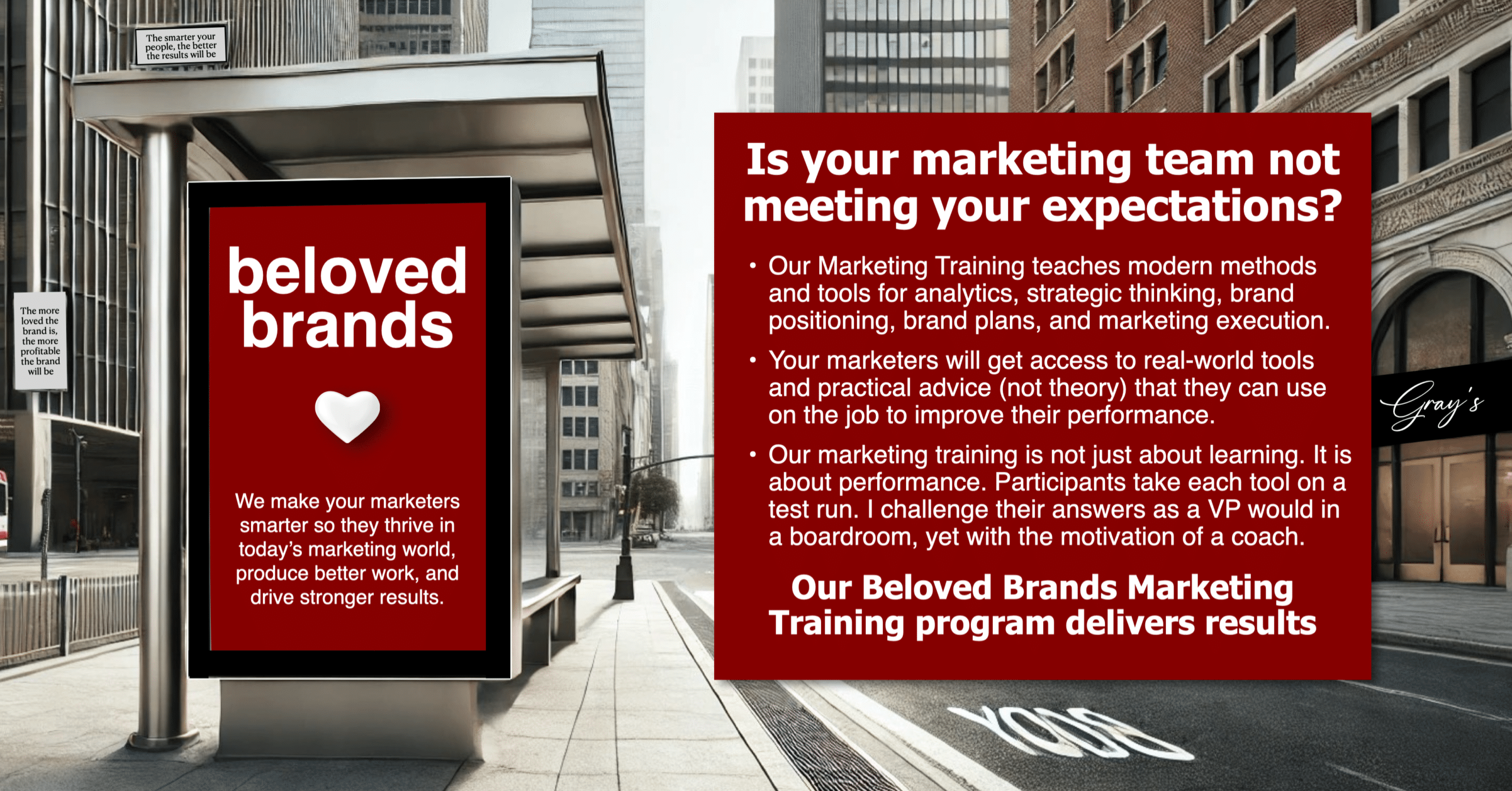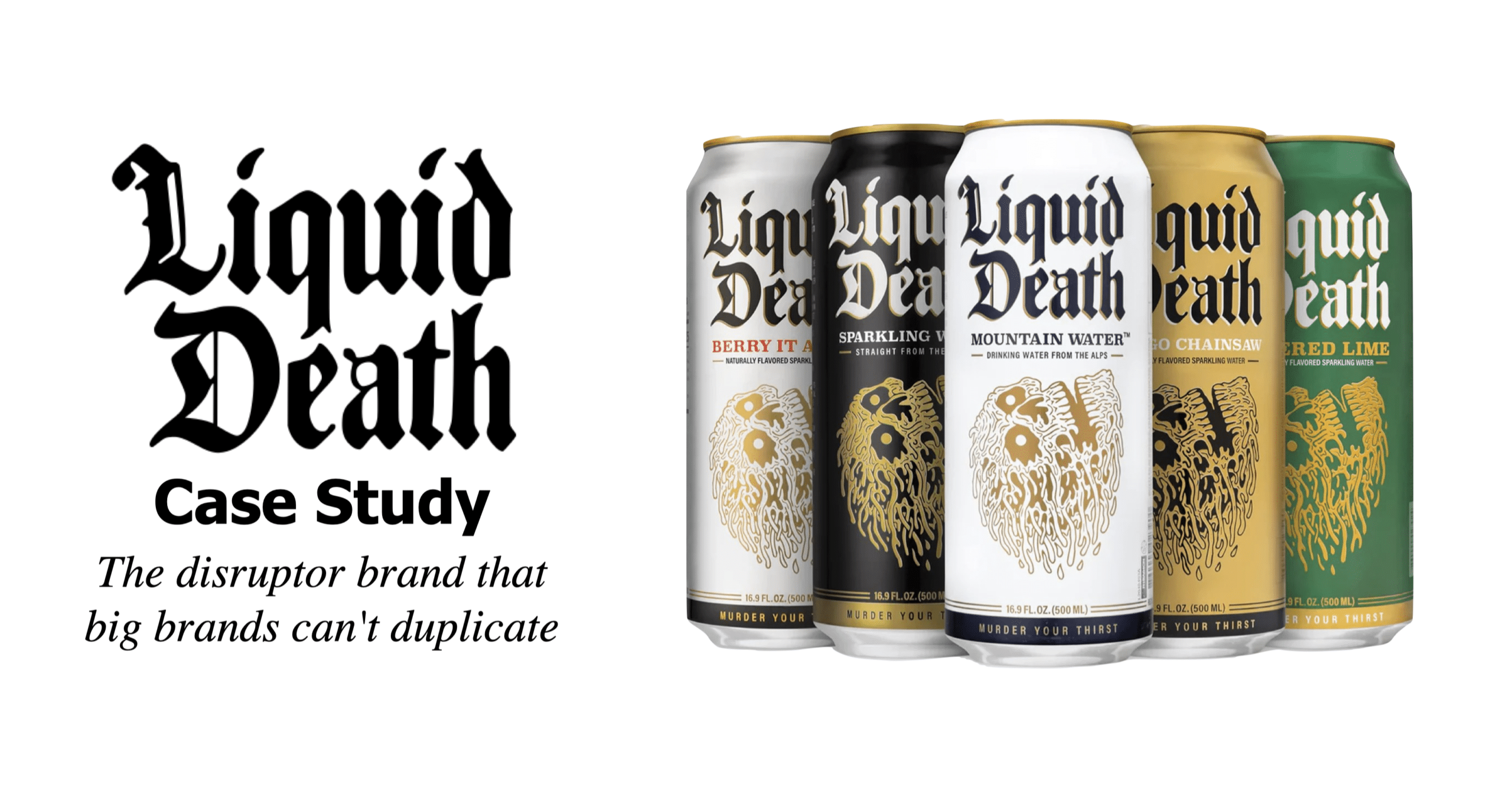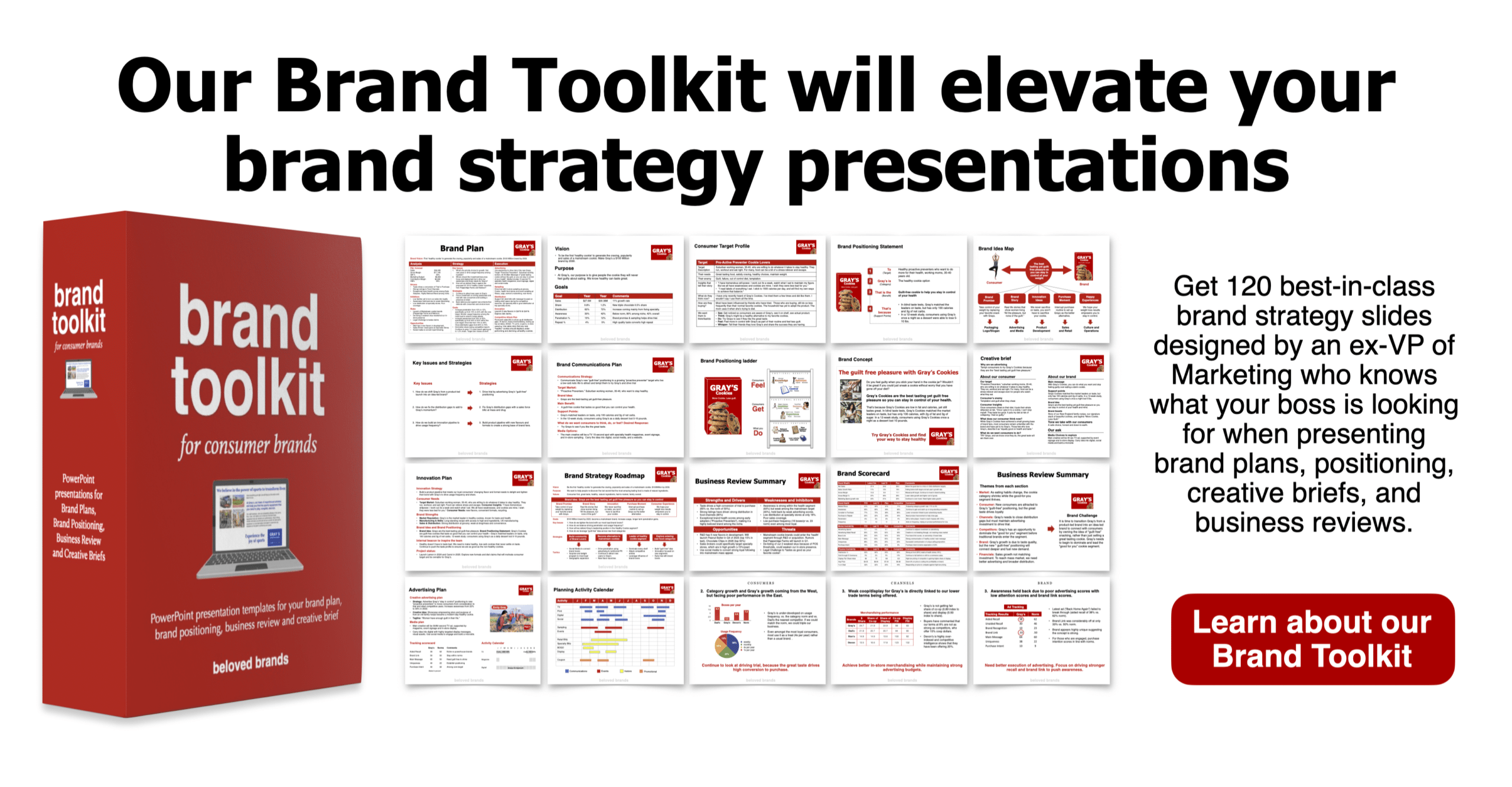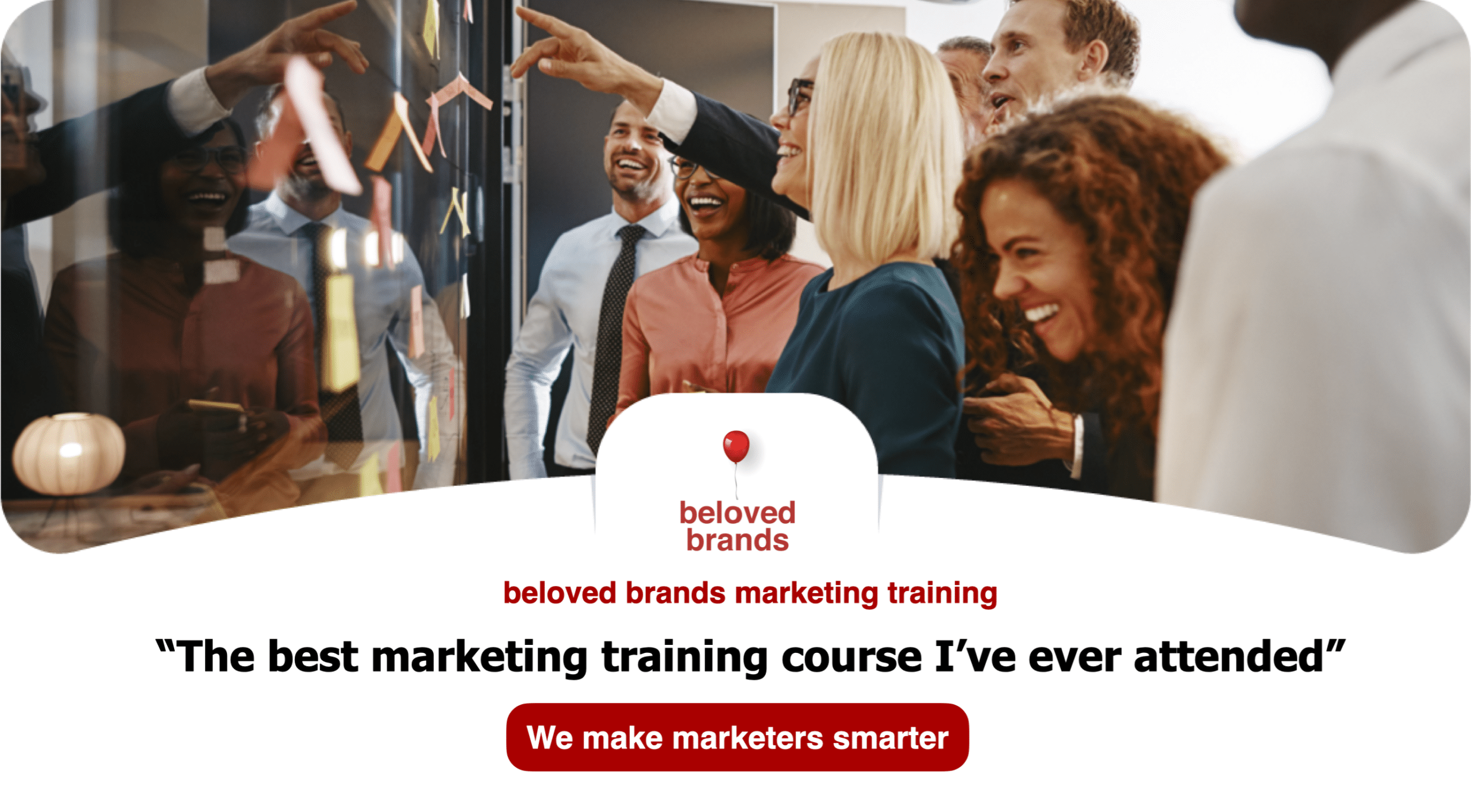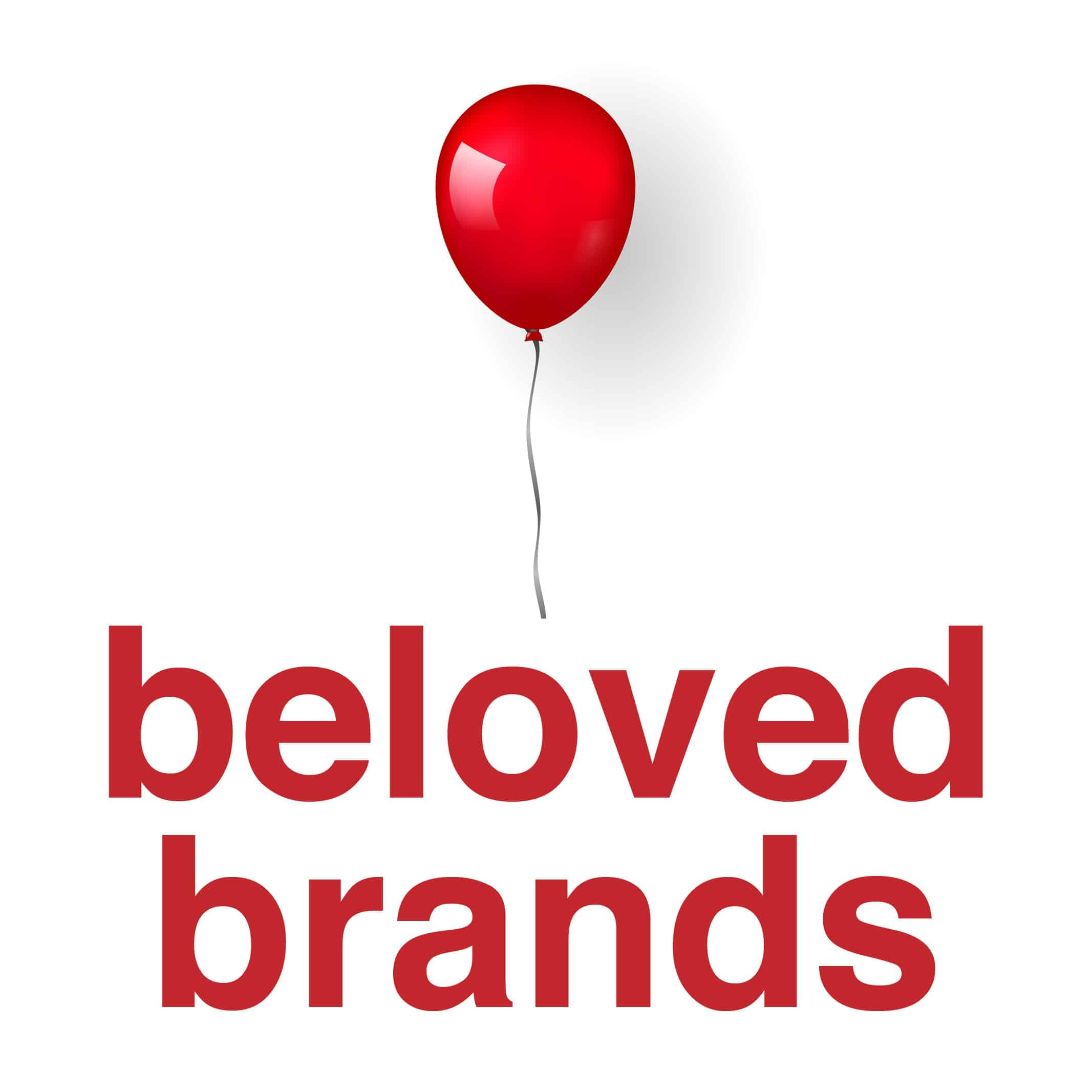As a leading energy drink brand, Red Bull has become a household name across the globe. The brand is known for its high energy and exciting marketing campaigns. As well, Red Bull takes an innovative approach to product development. In this post, we will take an in-depth look at Red Bull’s marketing execution, exploring how the brand has become so successful. I hope you can learn from its daring approach and boost your own business. When you think of energy drinks, Red Bull is probably one of the first brands that come to mind. Our Red Bull case study focuses on Red Bull advertising, extreme sports, distribution, production, and innovation. They take chances most of us would be too afraid to do. This courage helps capture the attention of a younger audience.
The History of the Red Bull brand
We might know that the Red Bull brand was founded in Austria in 1987 by Dietrich Mateschitz. However, what we might not know is that the Red Bull idea came from a brand in Thailand, named Krating Daeng (Thai for Red Bull) launched in the 1970s. Mateschitz discovered the brand on a business trip in 1982 and loved the impact it had on his jet lag. He worked with the founder of the Thai product to adjust the formula to work with the western tastes, and together they created Red Bull GmbH. From there, Mateschitz took the lead on building the brand in the one of the most unique and recognizable brand identity that sets it apart from its competitors.
The company’s signature logo, the charging bull comes from the Thai brand. Today, it is instantly recognizable and has become synonymous with the brand. Red Bull has also developed many distinctive creative brand assets, using irreverent and playful language in its marketing campaigns. Their daring approach helps the brand to connect with its target audience of young, active, and adventurous individuals.
Red Bull Advertising
Red Bull, the iconic energy drink that has taken the world by storm, has a history of advertising that is as legendary as the drink itself. From its inception, they have focused on adrenaline-pumping experiences, and this has been reflected in its advertising campaigns.
Red Bull advertising introduces the "Red Bull gives you wings" tagline.
One of the earliest and most iconic Red Bull ads was the “Red Bull Gives You Wings” campaign. The campaign first aired in 1997. The Red Bull advertising created a series of television commercials that featured people performing daring stunts and achieving seemingly impossible feats after drinking Red Bull. The tagline “Red Bull Gives You Wings” quickly became a catchphrase. And the campaign helped to establish a drink for people who live life on the edge. Below is the Leonardo DaVinci ads.
To view the Red Bull advertising as part of our Red Bull case study, click on the arrow.
As an entrepreneurial brand, their advertising took dramatic risks. These cartoon ads were a strange way to sell an energy drink. In our Beloved Brands playbook, we talk about the best way to earn the attention of consumers within the cluttered media world is to take a risk. Do something creatively different from what consumers expect, which entertains, takes advantage of the media, and is shareable for consumers to influence others.
Be incongruent with what consumers expect

The Red Bull Felix Baumgartner stunt
Another notable Red Bull advertising campaign was the “Stratos” campaign. In 2012, Red Bull sponsored a daring stunt in which Felix Baumgartner jumped from a helium balloon at the edge of space, breaking the sound barrier on his descent. They created a series of ads and videos leading up to the event. And the jump itself was broadcast live around the world.
The Stratos campaign was a testament to Red Bull’s commitment to extreme sports and adrenaline-pumping experiences. Moreover, it solidified the brand’s reputation as a drink for people who push the limits.
Millions watched this stunt and many more on YouTube. A very high risk move that most of us would likely avoided.
To view the Red Bull stunt move as part of the Red Bull case study, click on the arrow.
Red Bull content marketing
Red Bull has also been a pioneer in the world of branded content. The company has created a number of successful branded content campaigns. These include the Red Bull Music Academy and Red Bull Soapbox Race. These campaigns have allowed Red Bull to engage with consumers in a more meaningful way. Importantly, they have helped to establish the brand as a leader in the world of extreme sports and culture.
Throughout its history, Red Bull has been known for its bold and innovative advertising campaigns. The brand has never been afraid to take risks and push the boundaries. Their courage has helped it to stand out in a crowded market.
Whether it’s sponsoring extreme sports events or creating viral videos, Red Bull’s advertising has always been focused on creating experiences that are as thrilling and exhilarating as the drink itself. It’s no wonder they have become such a beloved brand around the world. Their advertising campaigns are a big part of the reason why.
Red Bull product placement
One essential element of Red Bull case study is their product placement where it matters. Red Bull has successfully placed its products in a wide range of contexts, from sports events to movies and TV shows. Essentially, the product placement is not just about selling more energy drinks. To them, it’s about creating a lifestyle brand that people want to be associated with.
One of the most notable examples of Red Bull’s product placement is in the world of extreme sports. Red Bull has sponsored a wide range of extreme sports events, from the Red Bull Air Race to the Red Bull Crashed Ice competition. By associating itself with these events, Red Bull has been able to establish itself as a brand for adrenaline junkies and thrill-seekers.
Red Bull has also been successful in placing its products in movies and TV shows. One of the most famous examples is the appearance of Red Bull in the hit movie “The Hangover.” In the movie, the characters drink Red Bull and vodka. This helped to popularize the drink among a wider audience.
Another example of successful product placement is its partnership with the video game “Fortnite.” In the game, players can find cans of Red Bull that give them a temporary boost in their performance. This product placement has helped to establish Red Bull as a brand for gamers. They have created a strong association between the brand and the world of gaming.
Red Bull Racing
No Red Bull case study would be complete without talking about their Red Bull Racing team. Red Bull’s involvement in auto racing has been a driving force behind the company’s success and iconic status. The energy drink giant has made a significant impact on the world of motorsports, with its Formula One team and various other racing partnerships.
Red Bull’s involvement in auto racing began in the early 2000s, when it first entered the Formula One circuit. The company formed its own team, Red Bull Racing, in 2005. Importantly, the team quickly rose to prominence, winning its first race in 2009. Since then, they ahve become one of the most successful teams in Formula One. They have multiple championships and a reputation for pushing the limits and taking risks.
Max Verstappen is the lead racer for Red Bull Racing and has won the Drivers title for Formula 1 in 2021 and 2022. With 400 million viewers, Formula 1 is an amazing advertising vehicle for the brand.
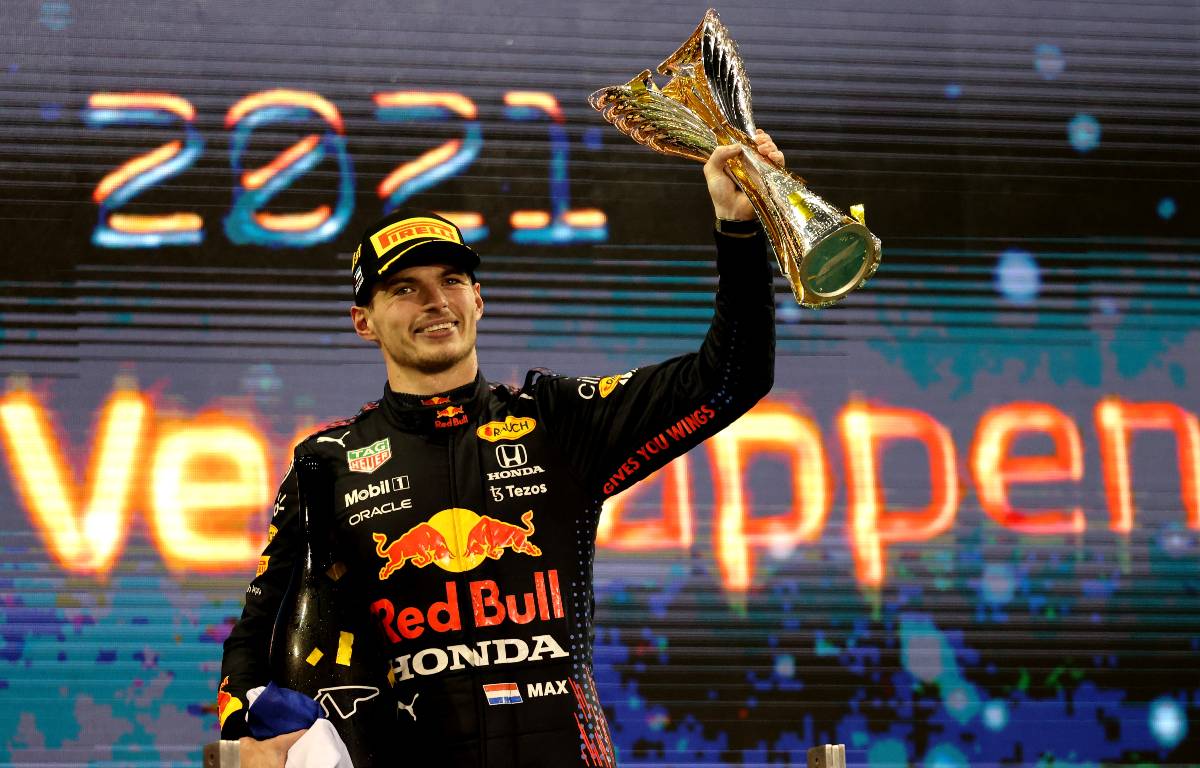
Red Bull's involvement in extreme sports
At the heart of our Red Bull case study is how the brand has become synonymous with extreme sports. Essentially, its involvement in the world of sports has been a key factor in the company’s success as a global brand. From sponsoring athletes to hosting extreme sports competitions, Red Bull has established itself as a leading player in the world of sports and has built a loyal following among sports enthusiasts all over the world.
One of the key elements of Red Bull’s involvement in sports is its focus on extreme and unconventional sports. The company has a reputation for supporting athletes who are pushing the limits of what is possible in their respective sports. Snowboarders. Skateboarders. BMX riders. Base jumpers. By supporting athletes who are breaking new ground and pushing the boundaries of their sports, Red Bull has been able to establish a reputation as a brand that is synonymous with risk-taking and adventure.
Another important element of Red Bull’s involvement in sports is its focus on creating unique and innovative events.
The company has a long history of hosting extreme sports competitions that are unlike anything else in the world of sports. You might have watched Red Bull Cliff Diving World Series. Or, you might have engaged in the Red Bull Air Race. By creating events that are truly unique and exciting, Red Bull has been able to capture the attention of sports fans all over the world and establish a loyal fan base.
Red Bull has also been innovative in its approach to sports marketing in the digital age. The company has embraced social media and other digital channels as a way to reach a wider audience and engage with sports fans in new and exciting ways. Importantly, they leverage the power of social media and other digital platforms. Red Bull has been able to amplify the impact of its sports events and reach sports fans all over the world.
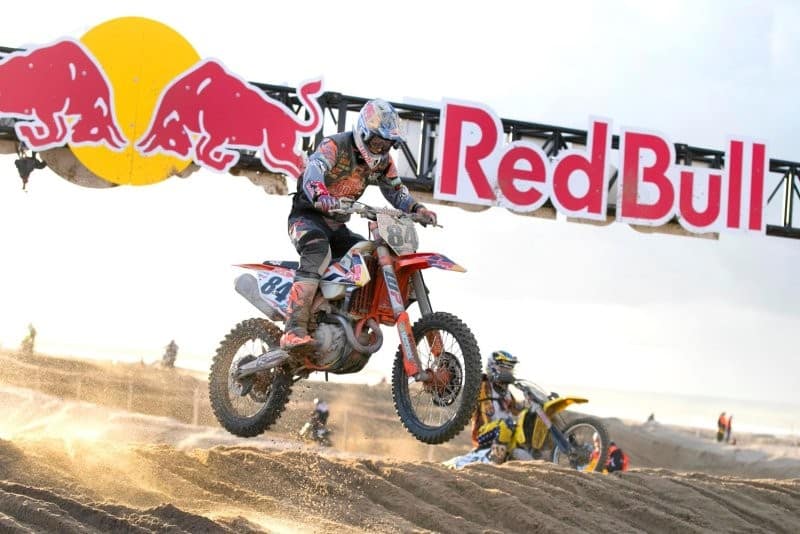
Red Bull retail distribution
Another important element of our Red Bull case study is their approach to retail distribution has been a key factor in its success as a global brand. The energy drink giant has developed a unique and innovative distribution strategy that has helped to establish its products in markets all over the world.
One of the key elements of Red Bull’s distribution strategy is its focus on exclusivity. The company has made a deliberate decision to limit the number of retail outlets that can sell its products. To them, they need to maintain a high level of control over the brand image and customer experience. This approach has allowed Red Bull to create a sense of scarcity and exclusivity around its products, which has helped to increase demand and drive sales.
Another important element of Red Bull’s distribution strategy is its focus on unconventional retail channels.
The company has made a conscious effort to target non-traditional retail outlets. You can find Red Bull ingas stations, convenience stores, and vending machines. By doing so, they have been able to establish a presence in markets that might otherwise have been overlooked. Moreover, it has created a strong association between its brand and the world of convenience and on-the-go consumption.
Red Bull has also been innovative in its approach to distribution in emerging markets. In countries where traditional retail infrastructure is lacking, the company has developed a network of independent distributors who are responsible for getting their products into the hands of consumers. This approach has allowed them to establish a presence in markets where other brands might struggle to gain a foothold.
Lessons from the best Coke ads of all time
Over the past 100 years, Coca-Cola has been the best advertising brand. Sure, Nike and Apple have battled for the best ads over the past 40 years. But, they’d need to get to 2080 before challenging Coke’s advertising legacy.
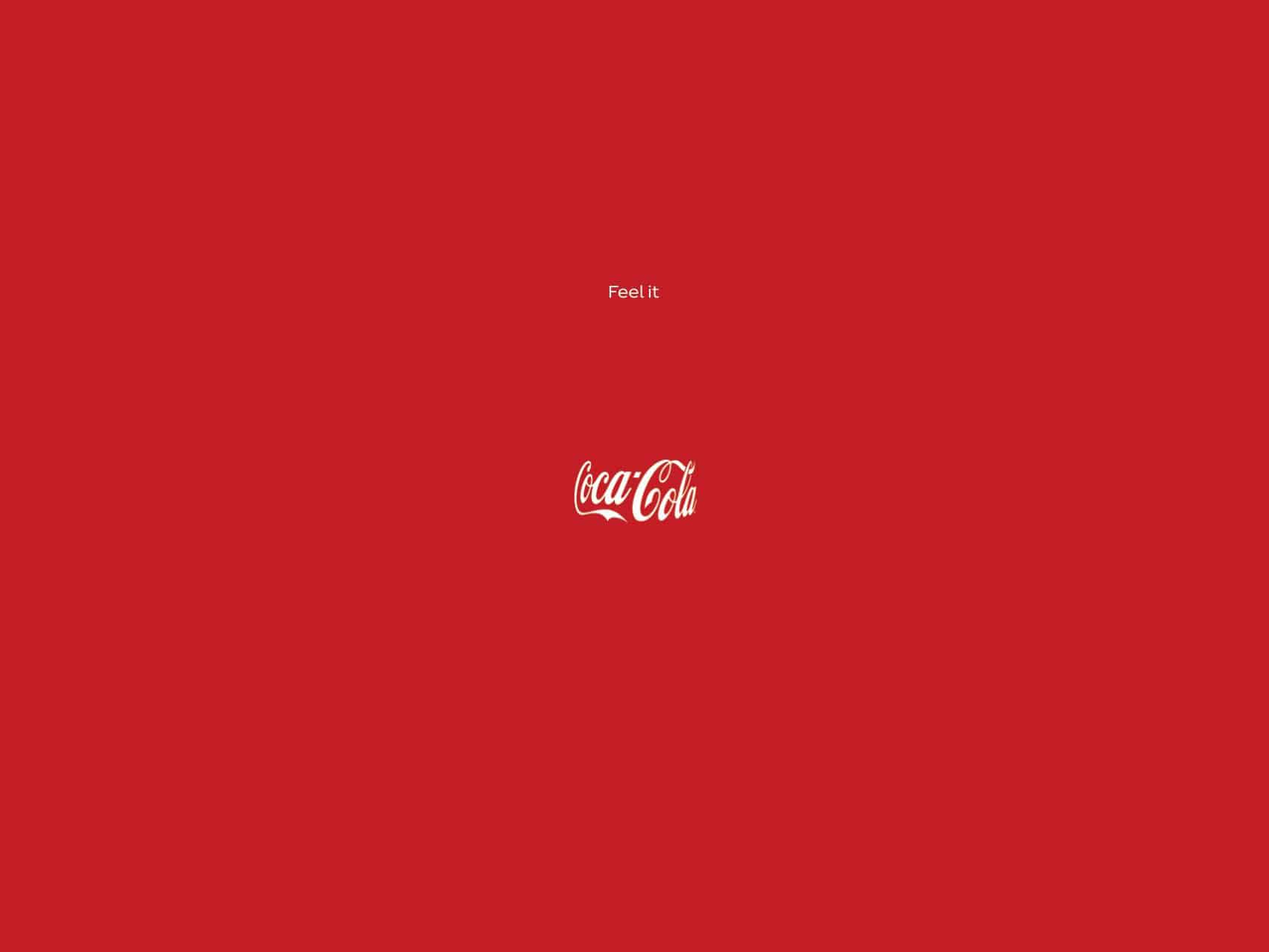
Red Bull product innovation
One of the key elements of our Red Bull case study is their approach to product innovation is its focus on functionality. The company is always looking for ways to improve the performance-enhancing properties of its products, and has invested heavily in research and development to achieve this goal. This approach has led to the development of new ingredients and formulations that deliver enhanced performance benefits, such as improved concentration and endurance.
Another important element of Red Bull’s approach to product innovation is its focus on flavor. The company has developed a wide range of flavors and variations on its classic energy drink formula, in order to appeal to a broader range of consumers and keep its products fresh and exciting. This approach has helped to establish a brand that is always at the forefront of trends in the beverage industry, and has helped to maintain its position as a market leader.
Red Bull has also been innovative in its approach to packaging and branding. The company has developed a distinctive and iconic can design that has become synonymous with its brand, and has also experimented with different packaging formats. Larger bottles and cans designed for sharing. These innovations have helped to create a strong brand identity for Red Bull, and have contributed to the brand’s success around the world.
Brand Management Mini MBA
Invest in your future. If you are an ambitious marketer, looking to solidify your marketing skills, our Brand Management Mini MBA will teach you about strategic thinking, brand positioning, brand plans, advertising decisions, and marketing analytics. We designed this program to help your marketing career.
Have a look at our brochure on our Mini MBA program
To view, use > to move through the brochure or x to see the full screen.
What is included in our Mini MBA program
Essentially, you get 36 training videos, key chapters from our Beloved Brands Playbook, and a Brand Management Workbook with exercises to try in real-time. Importantly, you will earn a certificate you can use on your resume or LinkedIn profile.
